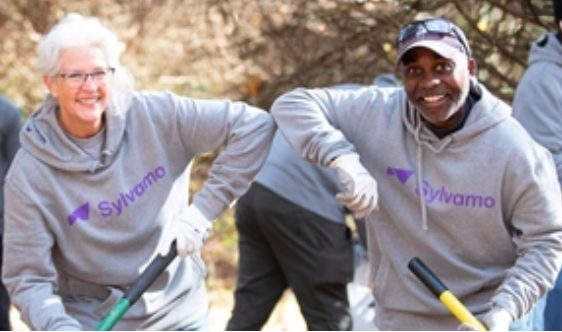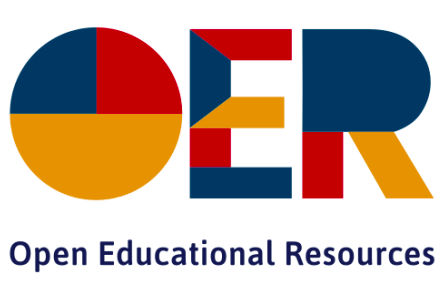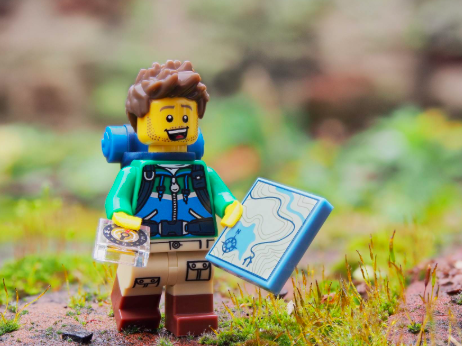Hi, I’m Linda Payne.
Welcome to my portfolio. I partner with clients, large and small, to build meaningful, learner-centered educational experiences.
Scroll to learn about my instructional design approach, services offered, and recent project samples.
My Approach
Make it about the learners.
Getting to know learner needs, motivations and learning environments is key to providing effective, meaningful learning solutions. This starts with an analysis of what students need to about a subject compared to what they already know. Learners have different intrinsic and extrinsic motivators as well, and I try to tap into those motivators as much as possible. Data about where students will take the courses, what technologies they will use, and how much time they can dedicate to learning helps determine appropriate modalities, multimedia types, and course length.
Align with business goals.
Whether your business is about creating learning programs to sell to other companies or you want to train your employees on company values, the latest software, etc., I realize the importance of aligning learner needs with business goals. I like to involve learners and stakeholders in early stages of a project and maintain an iterative approach to work and feedback to ensure the final result aligns a company’s vision and goals.
Design Services
Instructional Design
Doctor of Education, Instructional Design & Technology
6+ Years Instructional Design Experience
Course evaluation
Curriculum design
Curriculum mapping
Higher ed teaching (graduate-level, online)
Interface prototyping
Learner analysis
Learner experience design
Multimedia development
Needs assessments
Project management
Qualitative & quantitative research
Storyboarding
Subject matter expert (SME) collaboration
Content Design
Bachelor of Arts - English, Technical & Professional Writing
15+ Years Content Design Experience
Articles, blogs, & FAQs
Content analysis
Content management
Editing
Generative AI prompting
Instructional content
Links & labeling
Marketing, ads, & SEO
Project management
Segmenting/chunking
User experience (UX)
Web copy
Project Samples
UT Faculty Training
This project consisted of two Articulate Rise modules on Backward Design (BD) for University of Tennessee (UT) faculty, most of whom were not familiar with the BD teaching method. This was added to a library of courses they already had and, for consistency, was designed with the existing courses and UT branding in mind.
My Role:
Lead Instructional Designer & Project Manager; Authored Bulk of Module 1
Leadership Training
The goal of this project was to teach Sylvamo's core leadership competencies to employees.
My Role:
I edited and converted Sylvamo's PowerPoint slides to an online course. Images and video were provided by Sylvamo.
K-12 STEM
This case-based “Double-O STEM” informal after-school library curriculum was designed for students to use STEM activities to solve problems in their community. Objectives are aligned to Next Generation Science Standards (NGSS) and American Association of School Librarians (AASL) Standards. After deploying to local libraries, this curriculum was well-received and later adopted by a local university school system.
My Role:
Lead Instructional Designer & Content Developer
View Learner Curriculum - scroll to see cases starting with “Bike Lane Barriers”
View Educator Guide - provided to assist with facilitation of student cases as needed
Neurodivergent PBL
This course was created in Articulate Rise and designed to teach faculty and administrative professionals at Campus University schools (K-12) about the basics of neurodiversity and how to teach problem-based learning (PBL) in an inclusive classroom setting.
My Role:
Lead Instructional Designer, Content Designer, Course Developer (for 90% of content), Researcher, AI Prompt Engineer (Adobe Firefly)
View PBL Course - currently, you may need to be logged into Articulate to view this
How Adults Learn Module
This was a quick presentation on how adults learn that I did in Articulate over the course of a weekend, including the video (without AI help). I did elaborate on things as I spoke, but this was what I used instead of the usual PowerPoint slides.
My Role:
I created, edited, and presented all course materials with the exception of stock images and male voice.
Scroll to see peer-reviewed research publications.
Faculty Guide to OER
This quick-start guide was designed in Canva to educate faculty at the University of Memphis on open educational resources (OER) in order to increase the use of and contribution to OER resources.
My Role:
Although listed as a Graduate Assistant, my role on this project was an Instructional Design Consultant from the IDT Studio within the College of Education.
Intern Readiness Training
This was an NSF-funded project to teach data science to HBCU student interns. Links below are to an informal Articulate Rise course I created to help prepare HBCU students for the internship and a published design case.
My Role:
Instructional Design Consultant on this long-term project for 3-1/2 years.
Peer-Reviewed Research Publications
Payne, L., Tawfik, A., & Olney, A. M. (2022). Computational thinking in education: Past and present. TechTrends, 66, 745-747. https://doi.org/10.1007/s11528-022-00766-1
Payne, L., Tawfik, A., & Olney, A. M. (2021, Nov. 2-6). Computational thinking in education: A roundtable review of the literature. AECT 21 Homecoming (Homestaying): A Return to Learning through Innovation, Columbus, OH.
Payne, L. A., Tawfik, A., & Olney, A. M. (2021). DataWhys phase 1: Problem solving to facilitate data science & STEM learning among summer interns. International Journal of Designs for Learning, 12(3), 102-117. https://doi.org/10.14434/ijdl.v12i3.31555
Tawfik, A. A., Payne, L. A., Czupryck, J., & Knight, F. L. (2024). Using AI to Design Professional Development to Support K-12 Teachers Integration of Neurodiverse Learners. 2024 AECT International Convention. Kansas City, MO, USA.
Tawfik, A. A., Payne, L., & Kaldon, C.R. (2023). Measuring informal learning: Formative feedback towards the validity of the informal SOM-SCI. In B. Hokanson, M. M. Schmidt, M. E. Exter, Tawfik, A.A. Tawfik, Y. Earnshaw (Eds.), Formative design in learning.: Design thinking, growth mindset, and community. Springer. https://doi.org/10.1007/978-3-031-41950-8_14
Tawfik, A. A., Payne, L., Ketter, H., & James, J. (2024). What instruments do researchers use to evaluate LXD? A systematic review study. Technology, Knowledge, and Learning. https://doi.org/10.1007/s10758-024-09763-0
Tawfik, A., Payne, L., & Olney, A. M. (2021). Scaffolding computational thinking through block coding: A learner experience design study. Technology, Knowledge & Learning. https://doi.org/10.1007/s10758-022-09636-4
Tawfik, A. A., Payne, L., Olney, A. M., & Ketter, H. (2024). Exploring the relationship between usability and cognitive load in data science education. Journal of Applied Instructional Design. https://doi.org/10.59668/515.13078
Tawfik, A., Schmidt, M., Payne, L., & Huang, R. (2024). Advancing understanding of learning experience design: Refining and clarifying definitions using an eDelphi study approach. Educational Technology Research and Development. https://doi.org/10.1007/s11423-024-10355-z
Tawfik, A. A., Shepherd, C., & Payne, L. (2023). Libraries as addressing STEM equity issues in underserved urban settings. In B., Hokanson, M. Exter, M. M. Schmidt, A. A. Tawfik (Eds.), Toward inclusive learning design: Educational Communications and Technology. Springer. https://doi.org/10.1007/978-3-031-37697-9_20
Tawfik, A. A., Shepherd, C., Payne, L., Gishbaugher, J., & Armstrong, L. (2021). Double-O STEM: Community- Based STEM Projects for Informal Learning. EdTech Books. https://edtechbooks.org/double_o_stem_commun









